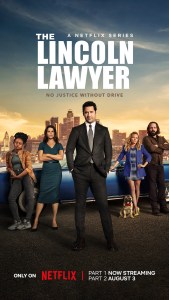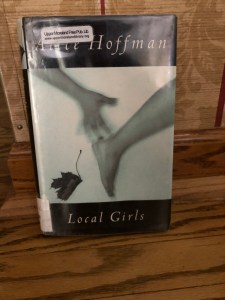It has been a while since I’ve mentioned Edgar Reewright, my longtime editor, on these pages. The last occasion was nine months ago, when he and his wife Loretta were deciding whether or not to accept Elon Musk’s offer to join Elon’s SpaceX senior citizens lunar program. Well, in the end they would have signed up. But before that could happen, Elon, in late June 2023, pulled the plug on the incipient project, whose initial lunar landing by seniors had been scheduled for 2026.
“Neil, Musk eats it!” Edgar told me on the phone last July. “You know what his main reason was for cancelling? Adult diapers! Shit, can you believe it? These were his exact words when he called to give me the news: ‘I’m most sorry to inform you, Edgar, that I’m deep-sixing the senior citizens lunar program. You see, every oldster already in the program is dependent on adult diapers. And you and your wife, on your applications, indicated that they are essential for you too. The SpaceX rockets would have to double in size to accommodate the numerous boxes required for this sanitary product. Not to mention the problem of what to do with soiled diapers. We couldn’t just open a hatch and toss those bad boys into outer space, after all. Well, maybe we could, but if we did and the word got out, the negative publicity would devastate my businesses. Edgar, I’ve got to go. Not to the bathroom, but back to work. Goodbye.'”
“Bummer, my man, for sure,” I said to Edgar. “I know that you and Loretta would have loved to kick up your heels on the Moon. And I damn well might have applied to the program too. Oh well, such is life.”
Leave it to Edgar, though. He didn’t dwell on the SpaceX disappointment. As always, he moved forward with gusto. Case in point: When I spoke with him on the phone a few days ago, he told me he’d just completed writing a book for preschoolers.
“Neil, I’d never written a book of any kind before. But I needed a creative challenge, seeing that editing the pap you turn out for Yeah, Another Blogger isn’t exactly a soul-satisfying experience.”
I bit my tongue, responding instead with kind words.
“Why, Edgar, that’s wonderful. You’re a worldly person, rich with experiences and memories. I have no doubt your book will connect with developing minds flawlessly. What is the book about?”
“I’m glad you asked. Unlike your blog pieces, which exemplify the word wooden, my book is a hold-onto-your-hat tale about a set of young twins, a brother and sister. One day they decide to play hooky from school. I’d like to read the opening sentences to you. Okay?”
“Sure. Fire away.”
Jill and Bill are seven-year-old twins. They live with their parents in a small town in Colorado near the Rocky Mountains. They hate school. “School is for suckers,” they like to say. Their parents always are worried, since Jill and Bill say it so often.
“Hey, Bill, let’s skip school today,” Jill suggests early one Monday morning. “Heck, nobody in our class likes us, so they won’t miss us. And our teacher probably will be glad we didn’t show up, considering all the problems we cause.”
“Gee, Jill, that’s a great idea. After Mom drops us off at school we’ll sneak around to the back of the building and head to the mountains. I’m sick of Mom and Dad, so I want to stay away from home for at least a week. We’ll start forest fires and do lots of other fun things. Are you with me?”
“You bet. Let’s get ready,” says Jill.
“What do you think?” Edgar asked. “Want to hear more?”
“Spare me, Edgar. Holy crap, are you out of your f*cking mind? What you’ve written is incredibly inappropriate and warped. No preschooler should be exposed to anything like this. You’ll never find a publisher. And if you self-publish, avalanches of condemnation will rain upon you. Edgar, I’m seeing you in a new light. A dark light. I’m not sure I want you to be my editor anymore.”
Edgar held back comment for many seconds. Instead, he gulped. Multiple times. Finally, he spoke.
“Uh, are you sure about all of that? I never had children, which puts me at a disadvantage when determining what might be a good read for little kids.”
“Trust my judgment, Edgar. If this is the kind of subject matter you feel the need to tackle, then do a major rewrite, with young adults as your intended audience.”
“Alright, I’ll take your advice. Or maybe I’ll just throw in the towel. In any event, am I still your editor?”
“Yeah, you are. I’d be lost without you. Plus, occasionally you give me something to write about. There’s a lot to be said for that.”
“Thank you, Neil, thank you. You’re the best. Well, not the best. Not by any means. But you truly are sort of okay.”












